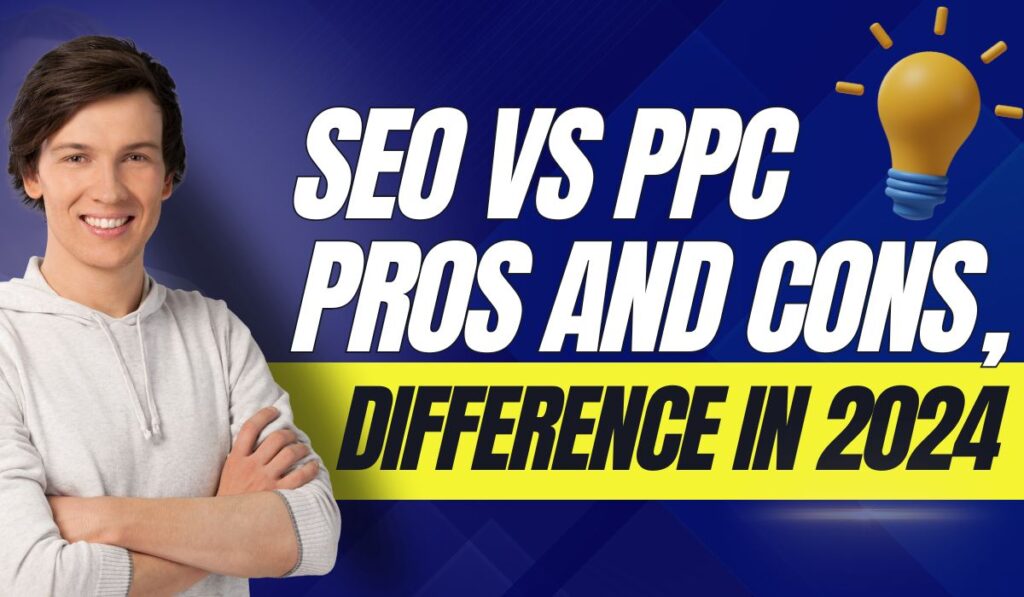What is SEO?
Search Engine Optimization (SEO) involves refining your site to achieve higher rankings in search engine results pages (SERPs). Search engines use bots to crawl website pages and complex algorithms to categorize them based on various factors, both known and unknown. Effective SEO practices focus on these known factors to improve page rankings while ensuring the content is useful and relevant.
SEO consists of on-page and off-page strategies. On-page SEO involves optimizing the content of your web pages, such as by incorporating commonly searched keywords and phrases in the titles and throughout the copy of blog posts. Off-page SEO, on the other hand, enhances page rankings without altering website content, for instance, by implementing a backlink campaign. Successful SEO leads to more organic traffic, which is traffic from search results rather than paid ads.
SEO Pros and Cons
While generating organic traffic through SEO offers clear advantages, it also presents some challenges.
Pros
- Lower long-term costs. SEO is more cost-effective compared to PPC, where you incur charges for every click on your link. With SEO, there’s no need for continuous reinvestment in ads to maintain visibility.
- Sustained organic traffic. Organic traffic generated through SEO can be maintained with ongoing optimization efforts. Once you achieve a high ranking in SERPs, these efforts help you retain your position.
- Enhanced brand credibility. Effective SEO requires providing informative, relevant content that meets your audience’s needs. Producing such content not only improves the user experience but also enhances your reputation and credibility over time.
Cons
- SEO requires expertise. Developing and maintaining an effective SEO strategy isn’t something you can master overnight. You’ll need to either learn the skills yourself or hire professionals specializing in this field.
- Search engine algorithms can change. Search engines frequently update their algorithms, which can lead to a sudden drop in your page rankings.
- Regular website upkeep is necessary. To maintain your web pages’ rankings, you’ll need to optimize them as long as they remain live consistently.
- Success with SEO takes time. Factors such as starting a new website or the competitiveness of your search terms can mean it takes weeks or months to see results from your SEO efforts.
Also Read: Best Free Social Media Audit Tool
What is PPC
Pay-per-click (PPC) is a digital marketing strategy where a business bids to have its advertisements appear on SERPs, usually in the premium top positions, for users searching for specific keywords. When users click on these ads, the business pays the publisher the amount it bids. Depending on the terms, competition for the best PPC ad positions might be fierce and expensive. If another business outbids you, the publisher will show your ad less frequently or not at all.
PPC Pros and Cons
PPC has become a popular marketing strategy due to its ability to increase visibility and traffic quickly; however, these advantages can come with a high financial cost. Think over the benefits (pros) and limitations (cons) of PPC advertising below.
Pros
- Top page ranking: Getting top spots in SERPs increases traffic and conversions, which is the most evident advantage of PPC.
- Fast results: Since you can outbid your rivalry to secure top page rankings, PPC generates traffic much quicker than the gradual process of SEO
- Quick and easy ad experimentation: PPC allows you to set up and modify ads swiftly, enabling you to run simultaneous ads with small variations to determine which ones perform better.
- More effective targeting: PPC campaigns enable you to precisely target your audience with personalized messaging based on specific geographic regions, interests, behaviors, and more.
Cons
- The expense is significant. You lose money every time someone clicks on your link. Moreover, competitive keywords and industries often require higher bids, further increasing expenses. A substantial investment in a PPC campaign is necessary to achieve worthwhile results.
- Bidding wars can escalate costs rapidly, both in the short and long term, as you compete with competitors for ad placement.
- Your visibility is directly tied to your budget. If your funds run out, your ads are immediately removed from SERPs, potentially leading to significant traffic losses.
- Sponsored ads can become stale. In competitive spaces, PPC ads can start to blend or become outdated, leading to ad fatigue among audiences. To maintain effectiveness, PPC ads need regular refreshing and ongoing attention.
SEO vs. PPC: Which Should You Choose?
Choosing between SEO and PPC depends on several factors such as your business goals, budget, team size, and more. Remember, you can utilize both strategies together effectively. Consider the following scenarios to determine which approach best suits your unique needs:
Use SEO if:
- You have a limited budget.
- You seek long-term, consistent results.
- Your focus is on creating informative content.
- Increasing the value of your website for potential sales is a priority.
Use PPC if:
- Immediate results are crucial.
- You are advertising a special occasion or transient deal.
- You sell a unique product and want to enhance visibility quickly.
- Maximizing conversions is your primary goal.
- Targeting a specific audience segment is essential.
How to Combine SEO and PPC:
- Boost SEO Rankings Faster: Use PPC ads to promote high-quality content and accelerate SEO rankings.
- Retargeting: Convert organic visitors into customers by retargeting them through PPC campaigns.
- Enhanced Visibility: Establish authority and trust by maintaining both organic and paid visibility.
Keyword Strategy Testing: Test and refine keyword strategies with PPC ads before implementing them in SEO campaigns.

